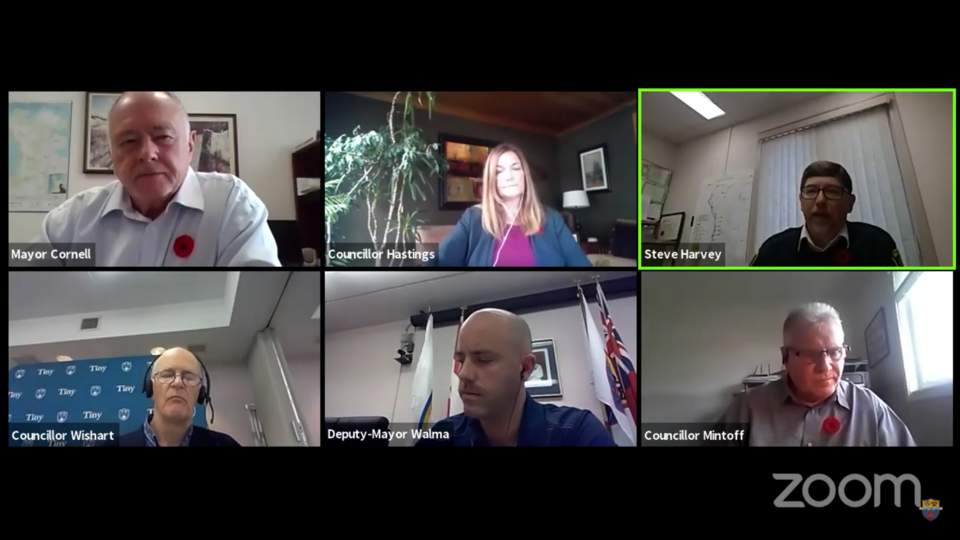How many times should a resident be educated before being ticketed?
According to Tiny Coun. Tony Mintoff, "You educate them once or twice and then give them a written warning."
His comment came in response to bylaw reports presented at a recent committee of the whole meeting.
"When I look at it, it tells me that only 3% of them resulted in tickets," said Mintoff, talking about the 303 noise bylaw incidents mentioned in the report.
There were 20 noise complaints against one property, he said, adding, out of those, 16 were found to have no violation.
"Three times the property owners came out to speak to the officer and were educated and once they were issued a written warning," continued Mintoff. "Just seems to me they were a little bit lenient there."
Steve Harvey, chief municipal law enforcement officer, said the category of 'educated the person' exists to document a situation in which bylaw reaches a property, but doesn't hear a noise bylaw violation.
"We express to (the property owner) why we're there," he said. "We don't have the evidence to lay the charge. That's why it would fall that way. The purpose of educating the person is that they're more aware of what the situation is so they can take steps to prevent it."
Removing that category would leave 19 complaints in the no violations category and only one in the issued a warning field, Harvey said.
"It is concerning that we have 20 calls to the same situation and we're not finding any violations," he conceded.
Coun. Cindy Hastings also had questions around the noise complaints.
"It appears based on your report that we're not seeing a lot of noise complaints in relation to short-term rentals (STRs), which doesn't seem to jibe with the emails we receive," she said. "Are they going to the OPP instead? It seems pretty low."
Harvey said the number (10) is in line with last year.
"We only had a few properties last year with STRs and staff's opinion is that the strict enforcement process we have really does work in a lot of situations," he said. "Sometimes the officers go and deal with the situation and choose not to pass it on to bylaw. I do want to follow up with the OPP about that."
Mintoff then talked about the number of beach patrols done in 2020. The report indicates that more than 12,000 beach patrols were conducted during the year compared over 9,000 last year.
"(It) seems to me that 95% of them resulted in no action taken," he said. "That's almost a perfect record of not seeing anything on thousands of patrols and it seems to be incongruent with the complaints I've received from people. I just don't realize how you can have thousands of beach patrols and only one to two per cent of times they would see anything."
The important part, Harvey said, is compliance, which was 99% last year.
"We spent a lot of time this year on the beach," he said. "We didn't see any issues on the beach during our beach patrols, conversely there were five situations where we talked to people about a situation. That increase, year over year, speaks to the number of COVID-related activities about gatherings and parking."
Mayor George Cornell asked what beach patrols entail.
It consists of walking the 300 beach walkways in the township, said Harvey.
"They get to a beach, get out and walk the entire length of the beach and deal with parking tickets or whatever the case is," he said, adding that sometimes when people see a bylaw officer, they correct their behaviour before an interaction occurs.
Mintoff wanted to know how much of the revenue from the 3,855 parking tickets issued this year would come to the municipality.
"We would get the full amount for parking tickets, as compared to other tickets," said Harvey, adding when payments are made, it shows up as revenue on the township's balance sheet.
At the end, Mintoff asked staff to analyze response times and service-delivery times and bring back ideas on how to make the process more efficient.



